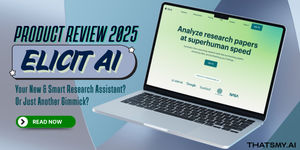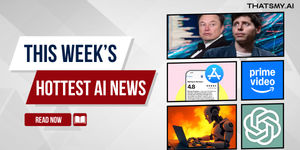The "AI Scientist" is a new AI tool designed to automate aspects of scientific research, such as reading literature, forming hypotheses, and running simulations. Developed by a team from Sakana AI and various academic labs, it currently operates within the field of machine learning. While it cannot perform physical experiments and its outputs are incremental, the AI Scientist shows potential to speed up research by handling repetitive tasks. As AI technology advances, it may revolutionize how we approach scientific discovery, freeing human researchers to focus on more creative and complex challenges.

Artificial Intelligence (AI) is making its mark across various fields, and science is no exception. Recently, a team of researchers developed an "AI Scientist," a groundbreaking innovation designed to automate parts of the scientific process.
This AI Scientist, created by Sakana AI in collaboration with academic labs in Canada and the UK, can perform a range of tasks—from reading research papers and forming hypotheses to running simulations and writing its own research articles. But what exactly does this mean for the future of science?
The AI Scientist is an AI model based on a large language model (LLM) that mimics certain aspects of human scientific research. It can read existing scientific literature, identify gaps in knowledge, propose new hypotheses, and even perform computational experiments.
Using techniques like evolutionary computation, which mimics natural selection, the AI Scientist tests various solutions and measures their effectiveness. It then documents these findings in a research paper, effectively closing the loop on the research cycle.
While the AI Scientist represents a significant step toward automated research, it has some limitations. Currently, it is restricted to the field of machine learning and lacks the ability to perform physical experiments, which is a crucial part of scientific discovery.
As one researcher put it, “There’s still a lot of work to go from AI that makes a hypothesis to implementing that in a robot scientist.” The AI's outputs are incremental and sometimes too simplistic to be groundbreaking, and it often relies on highly-cited papers, leading to a "popularity bias."
The goal behind creating the AI Scientist is to automate repetitive and time-consuming aspects of research. Many researchers have numerous ideas but lack the time and resources to explore them all. An AI like this can help in handling the more mundane tasks, allowing human scientists to focus on more creative and complex parts of research.
It could also make scientific discovery faster and more efficient by quickly sifting through vast amounts of data.
Looking ahead, there is immense potential for AI in science. Combining different AI techniques, such as symbolic AI, could make the AI Scientist more versatile and capable of tackling more abstract fields like pure mathematics.
Researchers believe that, while AI might not replace human creativity anytime soon, it could complement it by taking on a supportive role.
The development of the AI Scientist is an exciting glimpse into the future of science. While it is still in its early stages and has limitations, it represents a significant step toward more automated, efficient, and expansive scientific research. As AI continues to evolve, it may play an increasingly crucial role in how we understand and interact with the world.
Sign up to gain AI-driven insights and tools that set you apart from the crowd. Become the leader you’re meant to be.
Start My AI Journey
ThatsMyAI
20 March 2025

ThatsMyAI
7 March 2025